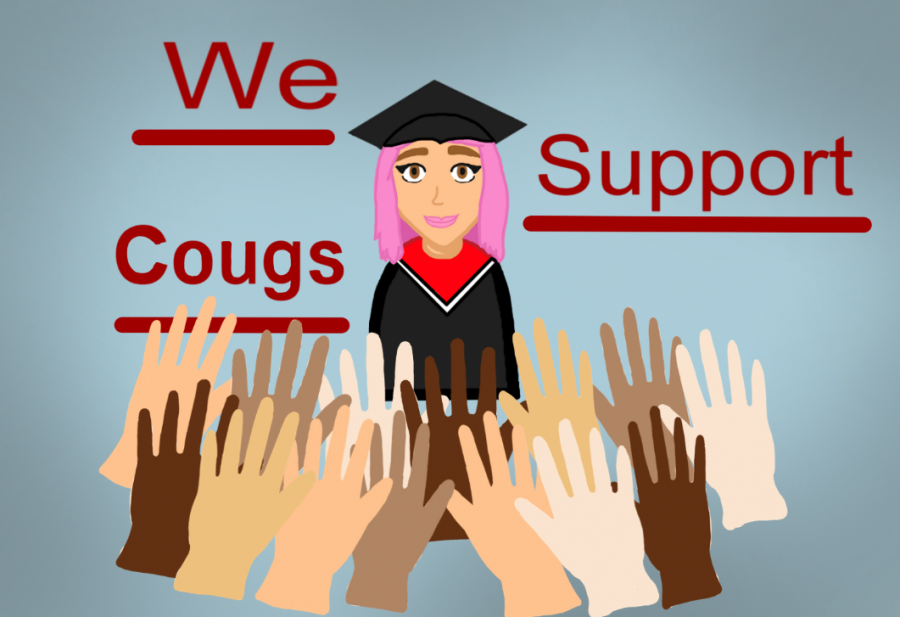OPINION: Student’s should use the I-Corps to help start businesses
There are plenty of ways to start a business while at WSU, you just have to look for them
Cougs help cougs, this also occurs in the realm of business as well. The I-Corps allows students to start their businesses now
March 23, 2020
Pullman needs more entrepreneurs. Individuals confident in burdening the risk of their venture for the value it creates. The Innovation Corps program is the best way that students with no business background can kickstart their business career.
I-Corps is a National Science Foundation program meant to spur innovation by colliding the business world with science and engineering. This program is an 8-week intensive course designed to graduate ideas into actionable entrepreneurial ventures.
This is especially the case for students without business or entrepreneurial backgrounds. Having an idea or an innovative technology is not enough. There must be means to test the market viability of the idea, means to make the idea realizable and noticed for those it aims to help. The I-Corps program not only provides the tools and methods to accomplish this, but also provides resources and mentors to facilitate the process.
“We want to see students that are career resilient and successful,” said Asa Brown, WSU’s Innovation and Research Advancement Coordinator. “Let’s apply the scientific method to validate the question of whether or not an idea has business value.”
What became I-Corps’ adopted methodology started in the 1930s manufacturing world of Toyota. It’s known globally now as the ‘lean manufacturing system’. This is an approach to production emphasizing fine-tuning over successive generations. Just as the scientific method demands scientists to gather data to validate and falsify their hypotheses, refining them as they learn. The lean methodology aims to do the same with entrepreneurship.
And this is the central premise of I-Corps – a methodological approach for value-testing your ideas. For aspiring entrepreneurs, this is a great framework to apply, and for scientists, engineers and students of related fields, this framework is familiar, giving a common language to tackle forming a start-up.
The I-Corps program came to WSU in 2015 thanks to Travis Woodland, WSU’s previous Innovation and Research coordinator. Applications are available every spring and fall semester to all alumni that have graduated within the last five years, and to all students currently attending the university. Of those that apply, only 12 teams are selected, meeting at 4:30 p.m. every Thursday to present their ideas and track progress under the scrutiny of the teaching staff.
As the course continues, teams are tasked with formulating effective value propositions and doing market research to identify their customer segment. Teams are asked to start with a hypothesis: what do your customers want and how will your idea help them get what they want. Through interviews with their potential customers, teams test their hypotheses, generating empirical data to gradually refine their value propositions and market strategy.
This is where having mentors with entrepreneurial legacy that are present and available is invaluable. I-Corps isn’t just about getting data and making a business hypothesis. The task of navigating the legal and start-up landscape requires collaborating with others. Just as teams must become comfortable speaking to their customers, teams must become comfortable with getting direct feedback. Just as teams must rely upon the will and needs of their customers, teams must rely upon expertise and insight outside their domain.
“Ideas don’t know geographic boundaries,” Brown said.
Recruiting a diverse team of experienced educators and entrepreneurs, Asa puts his words into practice. Ensuring targeted and tactical feedback for every team and affording plenty of attention in and out of class.
Aziz Makhani, a Technology Business Advisor with the Small Business Development Center started three successful start-ups throughout the 90s and 2000s, and is now an educator with I-corps.
Makhani is a great example of a scientist in background finding success in the private sector through his own initiative and entrepreneurial inclinations.
“What I-Corps does is the Seed stage,” said Makhani.
This is the very beginning. Keeping with the science analogy, this is when the research methods are figured, and the study is conducted. But you still need to publish, and make sure the research is disseminated and understood.
Successfully completing the I-Corps program gives teams access to $2,500 in stipends to conduct further market research and customer discovery. There’s also the Business Plan competition in April where teams can network with investors and earn an additional $15,000.
Students who may have the technical insight for innovation without the business knowledge should try to make their ideas possible by testing them out in the I-Corps program.





















